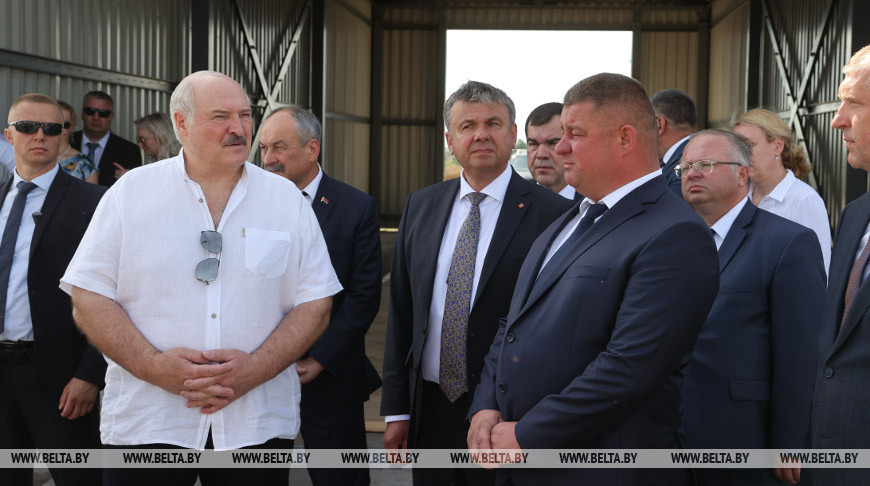
KAMENETS DISTRICT, 1 August (BelTA) – We need to make a wider use of domestic seeds in agriculture, Belarusian President Aleksandr Lukashenko told farmers during a working trip to Kamenets District, Brest Oblast, BelTA has learned.
Aleksandr Lukashenko has set the long-term task to replace imported varieties with domestic ones. He drew attention to this issue as he inspected a rapeseed field.
"The number one task is to make sure that we have them," the president emphasized. Self-sufficiency in seeds is not only import substitution, but also a matter of food security.
It is also important to ensure the high quality of seeds, their compliance with high requirements “so that we do not persuade farmers to use domestic seeds. They should see it for themselves," the head of state said.
Aleksandr Lukashenko also touched upon this topic when talking to residents of Belovezhsky agro-town. "Our science has a job to do together with plant breeders. You plant a lot of foreign varieties. You buy seeds in Germany, other countries. We need to have our own varieties. Probably it makes sense to buy 15% or maybe 20% abroad to compare and see the difference. We need to do it. But not more. When our science delivers, we will sort things out," the Belarusian leader said.
He also drew attention to the application of organic fertilizers. OAO Belovezhskoye has a good track record in this matter. "You apply everything that is needed for winter crops in autumn. This is great. We still have a lot of work to do. By visiting districts and farms I gather the information about promising areas of development of our rural communities. But we have a good base, we have something to build our successes on," the president emphasized.
As BelTA has reported earlier, during a working trip to Kamenets District the president demanded to improve the situation in Vitebsk Oblast. It makes sense for the region to plant more early crops due to its climatic conditions. Such crops include winter barley, rapeseed and a number of others. This makes it possible to complete harvesting earlier in the summer and prepare the soil for winter crops.






















